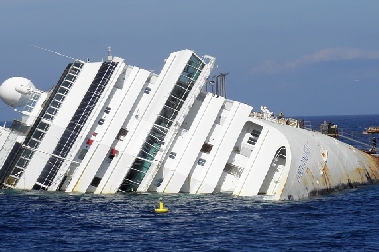
Maritime Casualty and Incident Investigator
Why should you attend?
Marine Casualty and Incident Investigator course focuses on the International Maritime Organization’s (IMO ) Casualty Investigation Code (CI Code) and the conduct of a transport safety investigation consistent with the CI Code. The CI Code provides the international standards for maritime transport safety investigation into a transport safety occurrence or accident.Learning objectives
On successful completion of this course the participants will:
- have a general understanding of the nature of accidents, society’s response to accidents and IMO’s processes.
- understand the CI Code’s content, its aims and how the CI Code was developed to meet the current needs of the shipping industry.
- understand how the CI Code is applied by a flag and/or coastal State in the event of a ‘very serious casualty’.
- be able to apply critical thinking principles and basic analysis techniques to the events and circumstances after attending a marine accident.
- understand the application of resolution IMO Assembly resolution A.1075(28) as an aid to investigation and its relationship to the CI Code and they will be able to analyse evidence from an accident in a structured way.
- be able to analyze the human factors influencing the incident
- understand that evidence is of paramount importance and furnishes proof of an event or proposition or idea.
- have some understanding of the limitation of memory and how people make decisions. They will understand that it is important that investigators understand that both the investigator and witnesses are subject to memory limitations.
- understand the limitations of witnesses and interviewers, and the technique of cognitive interviewing.
- understand how to recover electronic data undamaged and in a damaged state.
- understand some basic requirements of photographic records.
- understand the problems and possibilities associated with gaining evidence from a sunken ship.
- identify evidence to be established when addressing fatigue, stress and its effect on performance. IMO Assembly Resolution A.772(18), Fatigue factors in manning and safety and MSC.1/Circ.1014, Guidance on fatigue mitigation and management.
- understand the concept of risk and management of risk and the critical role that the ISM Code should play in safe operation.
- understand the critical need for considered, balanced, well-written and well-directed safety recommendations as a core output of the investigation.
- What are safety recommendations
- Early safety alerts
- Use of barrier analysis to identify possible recommendations
- Cost benefit analysis to ensure balance
- Methods to encourage “ownership” by recipients
- Methods to encourage early implementation
- Follow-up possibilities
- understand the requirements of issuing a draft report and the recommended structure of a final report, as required by the CI Code
- understand the requirements of MSC-MEPC.3/Circ.4 - "Revised harmonized reporting procedures – Reports required under SOLAS regulations I/21 and XI-1/6, and MARPOL, articles 8 and 12"
- understand the requirements of reopening an investigation and to deal with media.
COURSE DURATION-15 Days
Teacher
Mr. Bijimon Punnoose, PMP
Mr. Punnoose is a maritime Executive with over 30 years’ experience in various facets of the marine and offshore industry. Before taking over as the CEO of FloatSys, he was the CEO of International Register of Shipping. He is qualified lead auditor under various maritime code and ISO standards and have been an active participant in the IMO rules making process for decades.
